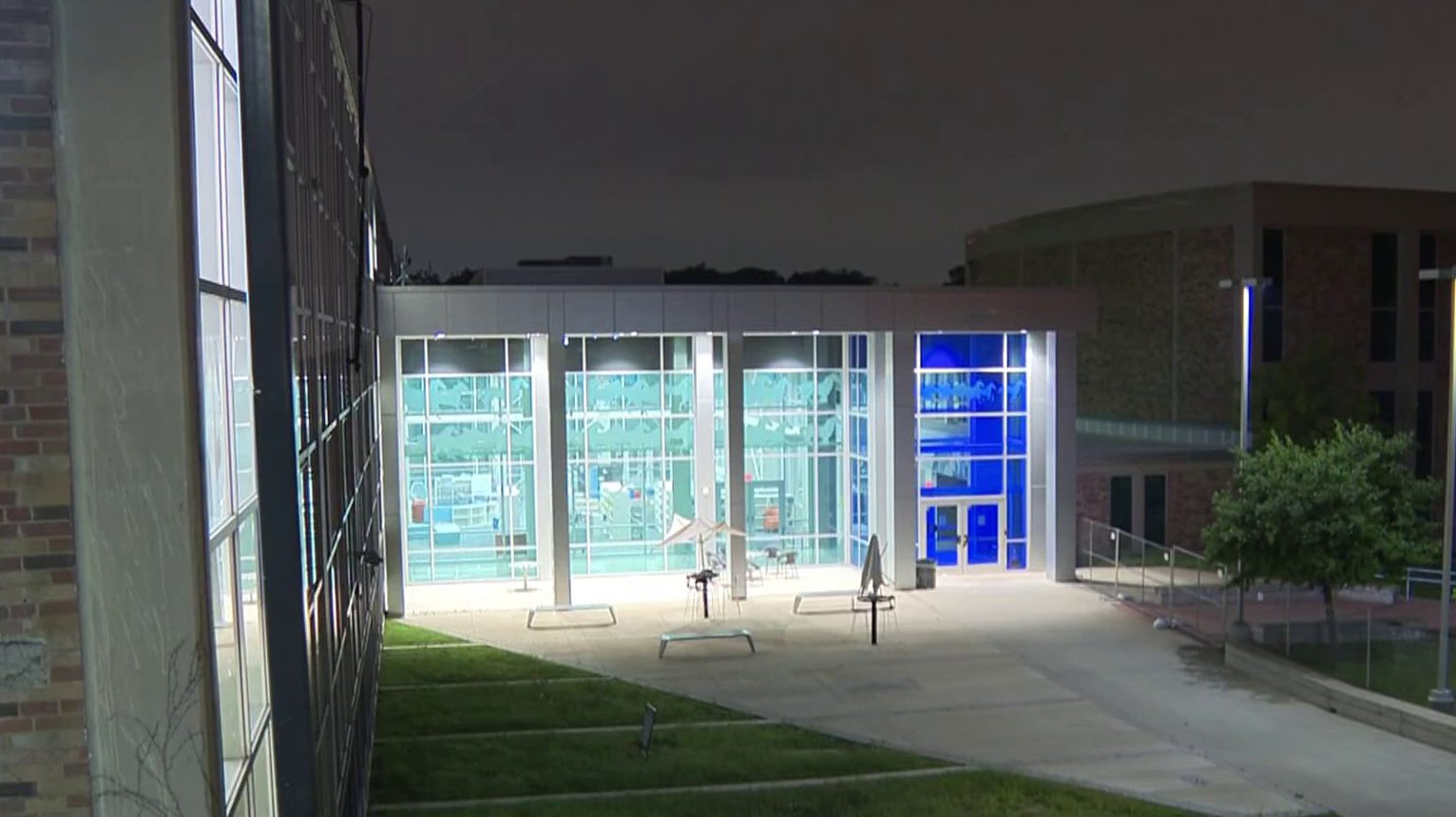FBI Director James Comey says investigators are still unable to access more than 100 messages exchanged by one of the gunmen in last May's shooting outside the Curtis Culwell Center in Garland.
Comey's comments came in the wake of the shootings in San Bernardino, California. Comey told the Senate Judiciary Committee that investigators believe Syed Rizwan Farook and his wife, Tashfeen Malik, were radicalized even before they began their online relationship and that Malik held extremist views before she arrived in the U.S. last year.
He told the panel that the two "as early as the end of 2013 were talking to each other about jihad and martyrdom before they became engaged and married and were living in the U.S."
Armed with assault rifles and hundreds of rounds of ammunition Elton Simpson and Nadir Soofi opened fire outside of a Prophet Muhammad cartoon contest in Garland.
Police returned fire, killing them both.
Just hours before the shooting, Comey says one of the gunmen communicated with a foreign terrorist.
"That morning before one of those terrorists left to try and commit mass murder he exchanged 109 messages with an overseas terrorist. We have no idea what he said because those messages were encrypted," said Comey.
Local
The latest news from around North Texas.
Those encrypted messages were exchanged on what's called the "dark web" and have become a major roadblock for the FBI as the agency works to track terrorists.
Just weeks ago, in an exclusive interview, the man in charge of the Dallas FBI office told NBC 5 Investigates that technology and new methods of communication are the agency's number one challenge.
"It's the most significant issue right now with the FBI," said Special Agent in Charge Tom Class, one that has made his job much more difficult.
To crack those encrypted messages, the FBI wants more cooperation from technology companies and new laws to provide more tools to access those communications.
"You know, we're very concerned about privacy clearly, but there's a concern though with a balance between privacy and protecting our citizens and we have to reach some sort of a balance there," said Class.
On Wednesday, Comey said the Garland attack messages prove this issue must be fixed.
"And today I can't tell you what he said with that terrorist 109 times the morning of that attack. That is a big problem we have to grapple with it," said Comey.
Finding a balance between privacy and safety will be tough. Many tech companies say encryption technology is necessary to protect their customers' privacy, customers who have legitimate reasons for protecting their information. The FBI says that's fine but wants more help from tech companies to help decrypt messages in cases where the government has a warrant.
Comey declined to say what role, if any, encrypted communications played in last week's massacre.
Though he said the Obama administration was not seeking to address concerns over data encryption on smartphones, he said he remained concerns that criminals, terrorists and spies were using such technology to evade detection.
"Increasingly, we are unable to see what they say, which gives them a tremendous advantage," he said.



